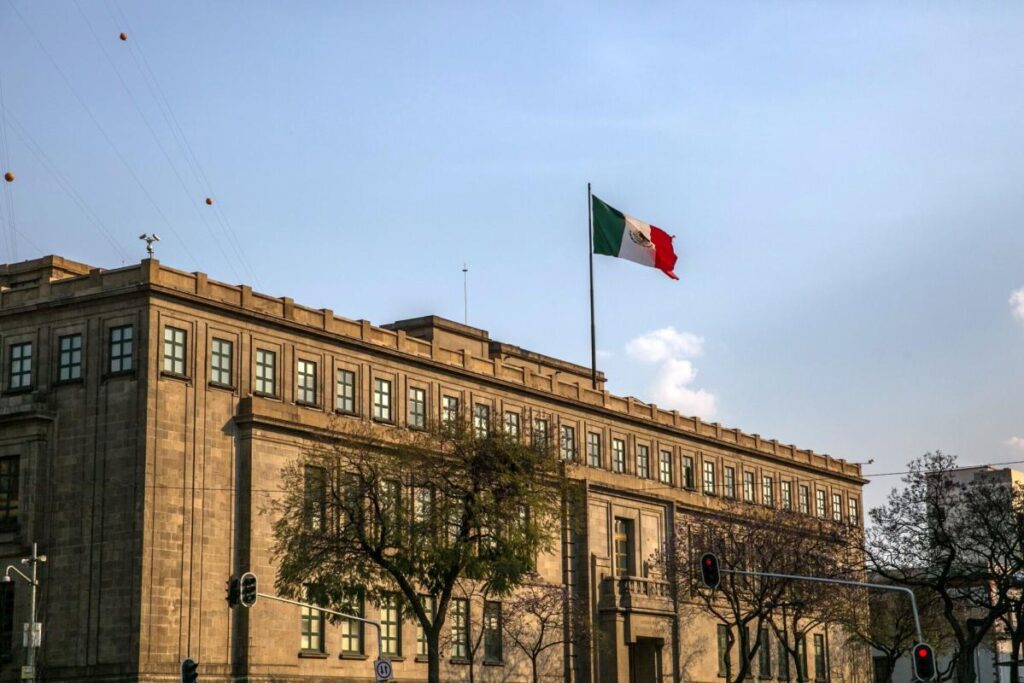Mexico’s Supreme Court recently dismissed a ruling aimed at curbing a judicial overhaul passed by Congress, alleviating fears of a significant confrontation with President Claudia Sheinbaum and avoiding a potential constitutional crisis. The unanimous decision occurred after the court was unable to secure the necessary majority to pass a ruling supporting Justice Juan Luis González Alcántara’s proposal. This proposal sought to legitimize popular elections for Supreme Court members—a pivotal aspect of the judicial reform, yet it also aimed to declare unconstitutional the expedited election process for federal judges, many of whom are slated for reelection in the following year. This situation emerged from several objections to the legislative changes enacted in September, and ultimately, the Supreme Court could not rally the required number of votes needed to uphold the proposal.
The judicial reforms, which saw robust support from Sheinbaum’s party, have sparked contention within the government. Justice Yasmín Esquivel, opposing the proposal, indicated that endorsing it would exacerbate tensions between the judicial and legislative branches, undermining the essential balance of power. She cautioned that Romans of past conflicts might emerge if the branches did not collaborate effectively. As the court sought a middle ground, it was evident that the uncertainties over the reforms necessitated a strategic withdrawal to prevent a full-blown constitutional crisis. Political analyst Juan Carlos Villarreal noted that the Supreme Court’s choice to reject the ruling was prudent, as it minimized the likelihood of escalating the existing governmental conflict.
President Sheinbaum has openly denounced Justice González Alcántara and his peers, accusing them of undermining the laws established by Congress and disrespecting the democratic mandate reflected in the recent electoral outcomes, which favored her party. She asserted that should the proposal have advanced, it would have prompted her administration to enact countermeasures. Following the Supreme Court’s decision, Senate President Gerardo Fernández Noroña expressed satisfaction, claiming the judicial process would continue, intact, and highlighting the significance of maintaining the current framework for judicial appointments.
The judicial overhaul was initially championed by Sheinbaum’s predecessor, Andrés Manuel López Obrador, and finalized during his final month as president. Critics, which include international observers and foreign investors, contend that instituting elections for judges threatens the integrity of Mexico’s judicial system. They warn that it risks diminishing judicial independence and undermining vital checks and balances within the government. In contrast, López Obrador and Sheinbaum have defended the reforms as necessary measures to tackle corruption within the judiciary and reinforce the rule of law in the country.
Justice González Alcántara articulated strong objections to the procedural aspects of the agreed judicial reforms, claiming the scheduled elections for judges by mid-2025—a time before many incumbent judges’ terms were due to expire—violated principles of judicial independence and the established separation of powers. He insisted that judges should fulfill their complete terms unless dismissed through clearly defined disciplinary or legal actions. Furthermore, he raised concerns about the new candidate nomination system, which he argued lacked guarantees for maintaining judicial independence and the authentic representation of citizen votes.
The failure of the Supreme Court to proceed with González Alcántara’s proposal, along with the encroaching dominance of Sheinbaum’s party, suggests a shift towards a more centralist political structure in Mexico. This transition may signify a move away from a consensus-driven democracy towards one reliant on majority rule, potentially resulting in increased political conflict. Analysts warn that such a centralization of power with the presidency may erode democratic practices and institutions, heightening the urgency for a more balanced approach to governance that encompasses diverse political perspectives moving forward.

